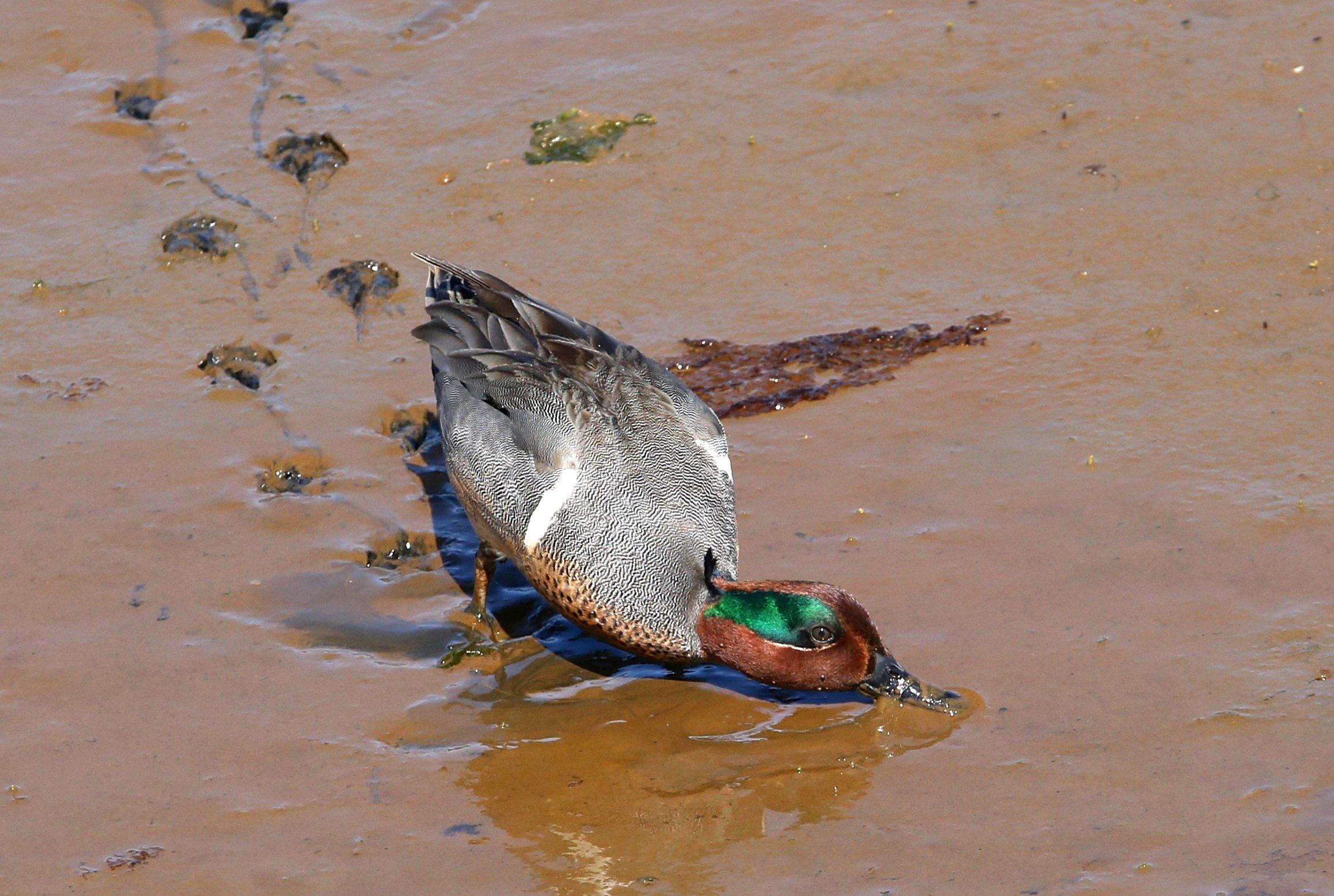It might look bleak when Mother Nature turns off the tap, but you can still shoot plenty of ducks

Acres of mud flats and dried potholes? The duck hunting situation isn’t as dire as it might seem. Photo by Vagabond54
Water pretty much goes hand in hand with waterfowl, so dry conditions in fall and winter pose an obvious conundrum.
Or do they? Sure, low rivers, barren ponds, shrunken sloughs, and dry timber can dash the hopes of hunters. But in many situations, assuming drought didn’t negatively affect spring duck production, relatively dry seasons just represent another piece in the ever-changing waterfowl puzzle. Adapt your strategies to find success when the faucet turns off.
Don’t Miss: 7 Shots You’ll Miss This Duck Season
WORSE IS BETTER?
No one likes to see dry conditions, especially considering their potential long-term effects on ducks. However, in areas with lots of permanent water — sloughs, lakes, rivers, impoundments, or large marshes — hunting can actually be better during dry seasons.
Staging and migrating ducks will concentrate on available water and cannot spread out on temporary ponds, sheet water, flooded fields, or remote backwaters. As a result, hunting might be hot on many permanent waters. The only downside to this is that most hunters know about tried-and-true permanent-water spots, so ducks and hunters can face intense pressure.
That’s why scouting becomes even more important when conditions are dry. You must try to locate overlooked or otherwise unpressured areas with enough water to attract ducks. Survey lakes, rivers, or marshes from good vantage points at dawn and dusk to note where birds feed, loaf, and roost. Follow flocks to and from roosting water to ag fields and then to loafing ponds or rivers, and search for potential ambush spots along the way. You’ll have to outwork the competition to find relatively content birds, but that’s true during any duck season.
ACCESS ADVANTAGE
Dry weather makes access extremely difficult in many areas. Channels and potholes evaporate into mud pits, limiting areas where boats can travel. Sloughs recede, and vast mud flats stretch from the cattail rim to the water. That’s tough on hunters and equipment, but it also offers opportunity. Many folks can’t or simply won’t work extra hard to reach or hunt difficult-to-access spots.
For example, most guys will run their duck boats and mud motors almost anywhere nowadays, but if they have to ditch the boat and walk a few hundred more yards, many will take a pass. Likewise, fighting quicksand-like shoreline mud flats eliminates much of your competition in pothole country. It’s simply a lot of work for a few ducks.
Identify spots where most hunters won’t go, plan the best ingress and egress options, and then allow plenty of travel time. Sweating and churning through rough country won’t be fun, but you’ll appreciate the effort when you have a place to yourself.
Don’t Miss: Keep Your Gear Ready for Duck Season
OVERNIGHT SWITCH
Dry conditions essentially recharge small or temporary wetlands, producing good duck chow in the form of new vegetation. And it doesn’t take too much precipitation to refill these spots with water. When that happens during duck season, focus your efforts on such places, because ducks love fresh water and will use it almost immediately.
Likely areas might include scrapes, potholes, sloughs, river mud flats, and previously flooded low spots in pastures or farm fields. Even just a day of good rain can start to form sheet water at such areas, and ducks will follow.
These areas can be tough to hunt, but it’s really no different than pursuing ducks or geese in harvested ag fields. Break out the layout blinds or A-frames, forge a solid plan, set out a common-sense spread, and then take advantage of the fresh opportunity. Take advantage early, though, as birds will have plenty of other water options and won’t stick around after a few volleys.










